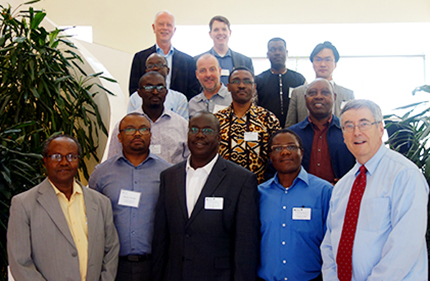Kick-off Meeting of the Ad-hoc Expert Group for Developing the OECD Consensus Document on the Biology of Mosquito Anopheles gambiae
-

March 14, 2019-March 15, 2019
Addis Ababa, Ethiopia
Despite intensive control efforts, malaria remains as the primary infectious parasitic disease of humans. New technologies will be needed to reduce the incidence of malaria transmission, including genetic approaches that will involve transgenic mosquitoes of the species Anopheles gambiae. To facilitate future risk assessments of transgenic Anopheles gambiae mosquitoes, the Organisation for Economic Cooperation and Development (OECD) has initiated an Anopheles gambiae biology consensus document that will detail the taxonomy, morphology, life cycle, reproductive biology, genetics, ecology, and interactions of Anopheles gambiae with other species within the environment. As a first step in drafting this document, the Agriculture & Food Systems Institute, in partnership with the Foundation for the National Institutes of Health (FNIH) and the African Biosafety Network of Expertise (NEPAD-ABNE), hosted an Anopheles gambiae Mosquito Biology Experts meeting on March 14-15, 2019 in Addis Ababa, Ethiopia. Mosquito biology experts convened at the meeting will begin to assemble the scientific information needed for risk assessors to evaluate the biosafety of new Anopheles gambiae genetic biocontrol approaches.
